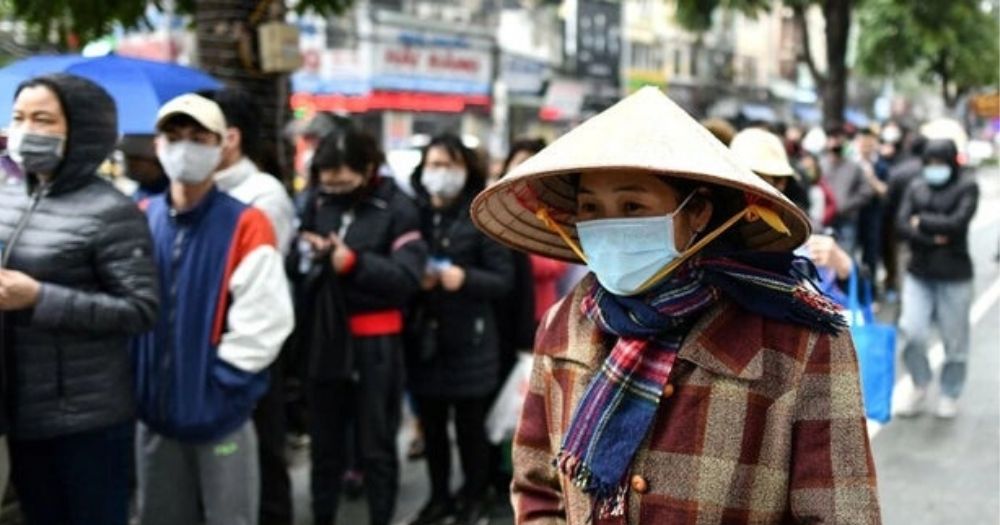
Vietnam has reported less than 300 cases of Covid-19 and no deaths since January 2020, according to official tallies.
On April 23, the country started easing its movement restrictions as most of Southeast Asia remained in lockdown.
Other Asian countries and regions such as South Korea and Taiwan have been praised for their swift and effective measures against the virus, while Vietnam appeared to have been omitted from the list of countries doing well.
Despite sharing a long and porous border with China and having limited resources, Vietnam is quietly winning its war against the virus, managing to keep the rate of infections much lower than other countries in the region.
While the numbers should be taken with a dose of caution, considering that the only source is Vietnam's authoritarian government, it is clear that the country has done an exemplary job at fighting Covid-19.
How did Vietnam do it?
Despite the odds facing them, Vietnam managed to keep the virus mostly at bay.
Kidong Park, the World Health Organisation’s (WHO) representative to Vietnam, believes the country’s early response to the crisis was critical, reported DPA International.
"Vietnam responded to this outbreak early and proactively. Its first risk assessment exercise was conducted in early January – soon after cases in China started being reported,” Park says.
Preemptive lockdown & bans
Despite having a low number of confirmed cases and no deaths, Vietnam went into a nationwide lockdown on April 1, a far faster and more decisive response than most other countries.
Looking further back, Vietnam put the district of Son Loi near Hanoi, with a population of 10,000 under quarantine for three weeks on Feb. 12, when there were only 10 confirmed infections in the entire country, according to Nikkei Asia Review.
They were also one of the first few countries to ban return flights to and from mainland China, having announced the suspension from Feb. 1, 2020, slightly more than a week after the country's first cases of Covid-19 were found.
Strict laws, cooperative community
On April 15, Vietnam's "fake news" laws went into effect, which was introduced to address the spread of misinformation about Covid-19 over social media in the country.
A fine of VND10-20 million (S$605-S$1,210) was to be imposed on people who make use of social media to share "false, untruthful, distorted or slanderous information", according to the decree.
Vietnam's surveillance state and generally well-respected military has also largely kept people from evading imposed regulations.
Security officials or Communist Party spies can be found on every street and crossing in every neighborhood and in every village, DW reported.
Despite strict measures, the mood on social media and conversations with Vietnamese indicate that the majority of the public agrees with the government measures.
Furthermore, Vietnam has applied a war rhetoric in this fight against Covid-19, which has helped rally the nation together with a very recent memory of actual war.
Against the odds?
Despite the odds, Vietnam has emerged rather successfully from the first wave of the virus.
Much of this success can be credited to their preemptive and decisive actions.
Vietnam faced two major threats -- its geographical location relative to mainland China, the original epicentre of the outbreak, and the country's own limited resources.
Ironically, it could be due to its weaknesses that indirectly resulted in the country's initial success in handling the virus.
Unable to depend on an abundance of clinical resources and medical technology to prevent an outbreak, Vietnam utilised its authoritarian state tools to stamp out the virus, implementing strict social laws among the locals.
Besides strict surveillance, preemptive lockdowns were imposed, in cases which many other countries would deem unnecessary.
Its close vicinity to mainland China also prompted them to take action early.
Besides implementing travel restrictions to mainland China in early February, Vietnam had already begun tightening its border and airport controls since Jan. 11, after the first death was reported in Wuhan, China, according to The Nation.
When there were only 27 reported cases of Covid-19 in Hubei Province, China, Vietnamese officials met with WHO and counterparts from the Centre for Disease Control to assess risks, and issue protective guidelines.
Reaping successes
Vietnam has become one of the first few countries in the world to emerge successfully from the first wave of the Covid-19 outbreak, having eased restrictions after a three-week nation-wide lockdown.
The nation remains cautious though, as officials say the transition will be gradual and limited to stave off the resurgence of a virus that has been unpredictable, reported VOA News.
Vietnam is reaping the success of its efforts, but is not declaring victory against the virus yet.
However, the country has bought much-needed time to prepare itself for a second wave of Covid-19.
It has upped domestic production capacity of fabric masks to seven million in a day, and 5.72 million surgical masks per day.
Vietnam’s biggest publicly traded corporation, Vingroup, has retooled automotive and smartphone factories with a promise to produce 55,000 ventilators a month.
In late March, Vietnam imported another 200,000 rapid-test kits from South Korea to further improve its readiness.
There appears to be many lessons that the rest of the world can learn from a country with 97 million people.
Top image credit: Getty images
from Hacker News https://ift.tt/2SesfNh
No comments:
Post a Comment
Note: Only a member of this blog may post a comment.